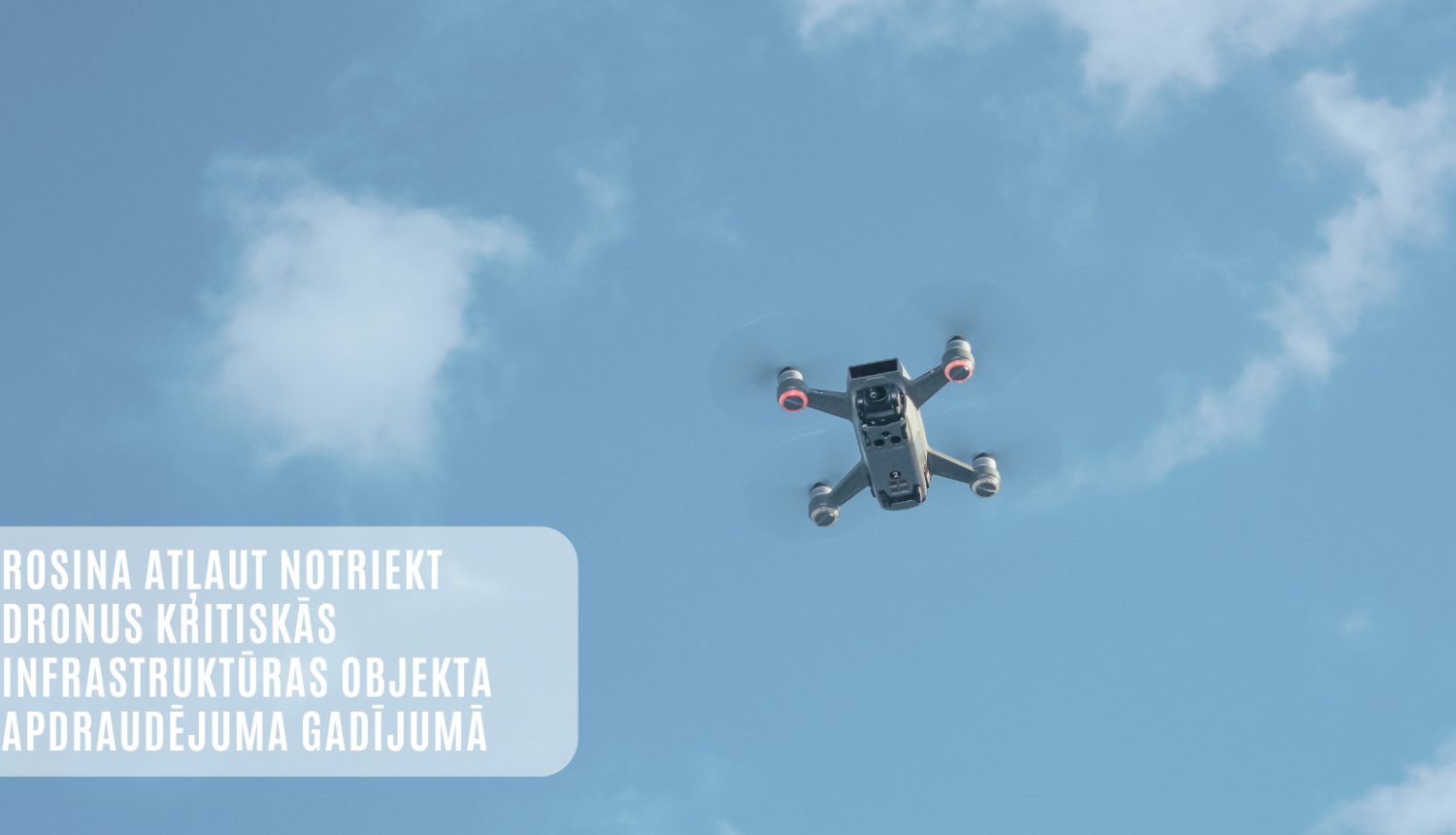Translated using ChatGPT service.
If a remotely operated device poses a threat to the security of a nationally significant infrastructure site, a security service or private security company employee will have the right to stop the movement of the device.
This initiative by the Ministry of Economics (MoE), which proposes amendments to the Law on Security Activities, was supported on Thursday, June 5, during a meeting of the Saeima Committee on Defence, Internal Affairs and Corruption Prevention. It was decided to advance the initiative in the Saeima as a committee proposal.
“I would like to thank the committee and its chairman, Raimonds Bergmanis, for their proactive approach in forwarding this draft law for a first reading in the Saeima as a committee initiative. This will allow us to be more prepared and take pre-emptive decisions in times of global challenges. It is commendable that bold decisions are being made in the name of national defence, economic growth, and well-being,” said Parliamentary Secretary of the Ministry of Economics, Jurģis Miezainis.
The decision was made as the Saeima committee continued reviewing proposals submitted by the MoE regarding amendments to the National Security Law. These amendments would grant the owners or legal managers of A, B, or C category objects — i.e., nationally critical infrastructure sites — the right to stop the movement of remotely operated devices in the air, on water, or on land if they pose a threat to the security of the site. Such infrastructure includes ports, airports, military facilities, and similar objects.
The right to take protective measures on behalf of the owner or legal manager of the critical infrastructure site is to be granted to an internal security officer of the site or an employee of a private security company contracted to provide protection.
The Ministry of Economics proposed these amendments in response to information received from state-owned enterprises — owners of critical infrastructure — regarding the risks posed by remotely operated devices and the need to establish a clear legal framework for countermeasures.
In order for the proposed legal amendments to be adopted, they must still be approved by the Saeima.



